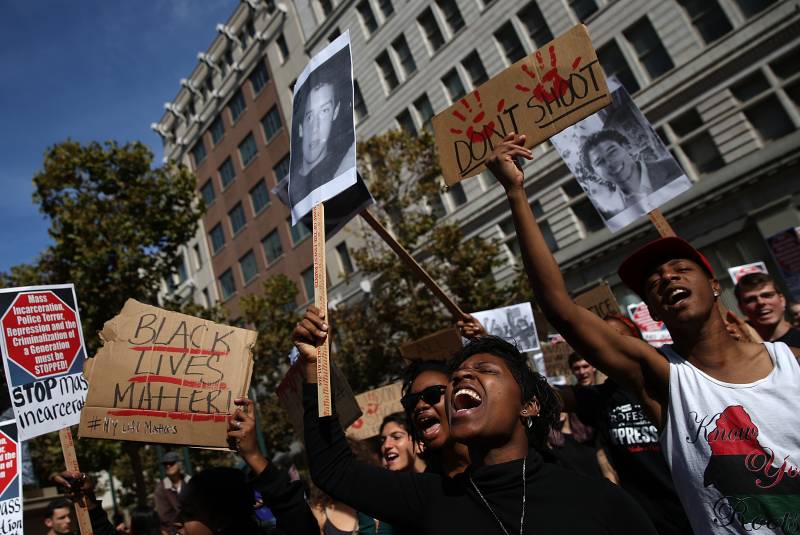Aug. 27, 12:23pm: This post was updated to include information on the Milwaukee Freedom Fund.
June 2, 10:36am: This post was updated to include the latest information on Bay Area bail funds.
The scope of systemic racism in this country is overwhelming and infuriating. Race affects everything—how seriously your doctor evaluates your symptoms, your quality of education, your job and housing prospects. And, of course, your likelihood of being harassed, arrested or killed by police, who, in the vast majority of cases, walk away with impunity.
In the wake of the police killing of George Floyd in Minneapolis on May 25, anti-police brutality protests have reignited across the country, including in Oakland and Hayward, the latter of which had two police shootings this month. Meanwhile, many people are struggling with ways to contribute to the fight for racial justice at a time when health authorities advise that the best way to help the world right now is to stay at home.


